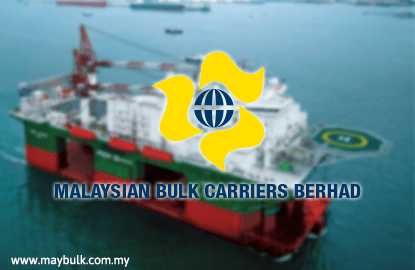
This article first appeared in The Edge Financial Daily, on April 8, 2016.
KUALA LUMPUR: The Baltic Dry Index (BDI), a measurement of freight for bulk carriers, hit 500 points — the highest level since mid-December last year — as more ships are sent for scrapping, which will help to ease the severe overcapacity the industry has suffered in the past few years.

The recovery on the BDI has helped to spur interest in Malaysia Bulk Carriers Bhd (Maybulk), whose share price has also staged a strong rebound from the historical low of 52.5 sen to a day’s high of RM1 yesterday before it closed at 91 sen, down two sen. Its trading volume swelled to a record high of 68.47 million yesterday.
The sharp rise in Maybulk’s share price has prompted Bursa Malaysia to query the shipping firm over an unusual market activity yesterday as the stock soared as much as 5.38% yesterday morning.
In a reply to Bursa, Maybulk stated that it was not aware of any reasons or any corporate exercise that may have contributed to the share price movement and high trading volume.
Maybulk’s share price was hammered by heavy selldown in the past two years from the peak of RM2.20 as the freight rates for dry bulk continued to be dragged down by overcapacity. In addition, its 21.32%-owned associate PACC Offshore Services Holdings Ltd, which provides offshore supportive vessels for the oil and gas industry, is hit badly by the industry downturn.
It is worth noting that MIDF Research two days ago upgraded the stock to a “buy” recommendation with a target price of RM1.04 based on a five-year average price-to-book ratio of 0.88 times.
The research outfit said the worst could be over for the dry bulk shipping sector and that valuations of Maybulk should revert to its five-year mean of its book value.
MIDF Research also noted that Maybulk had taken steps to impair various items on its balance sheet, making price-to-book valuation more reflective of current market prices and conditions.
“With the impairments done, Maybulk has assumed the worst in terms of charter rates for its vessels. Thus, minor declines or a persistence of the current low rates would unlikely cause large losses for its in-chartered fleet (28% of total dry bulk tonnage).
“Meanwhile, Maybulk will likely suffer only small losses on disposal (if any) should it decide to sell its vessels in the secondary market with an impairment done on its owned fleet to its net realisable value,” it said.